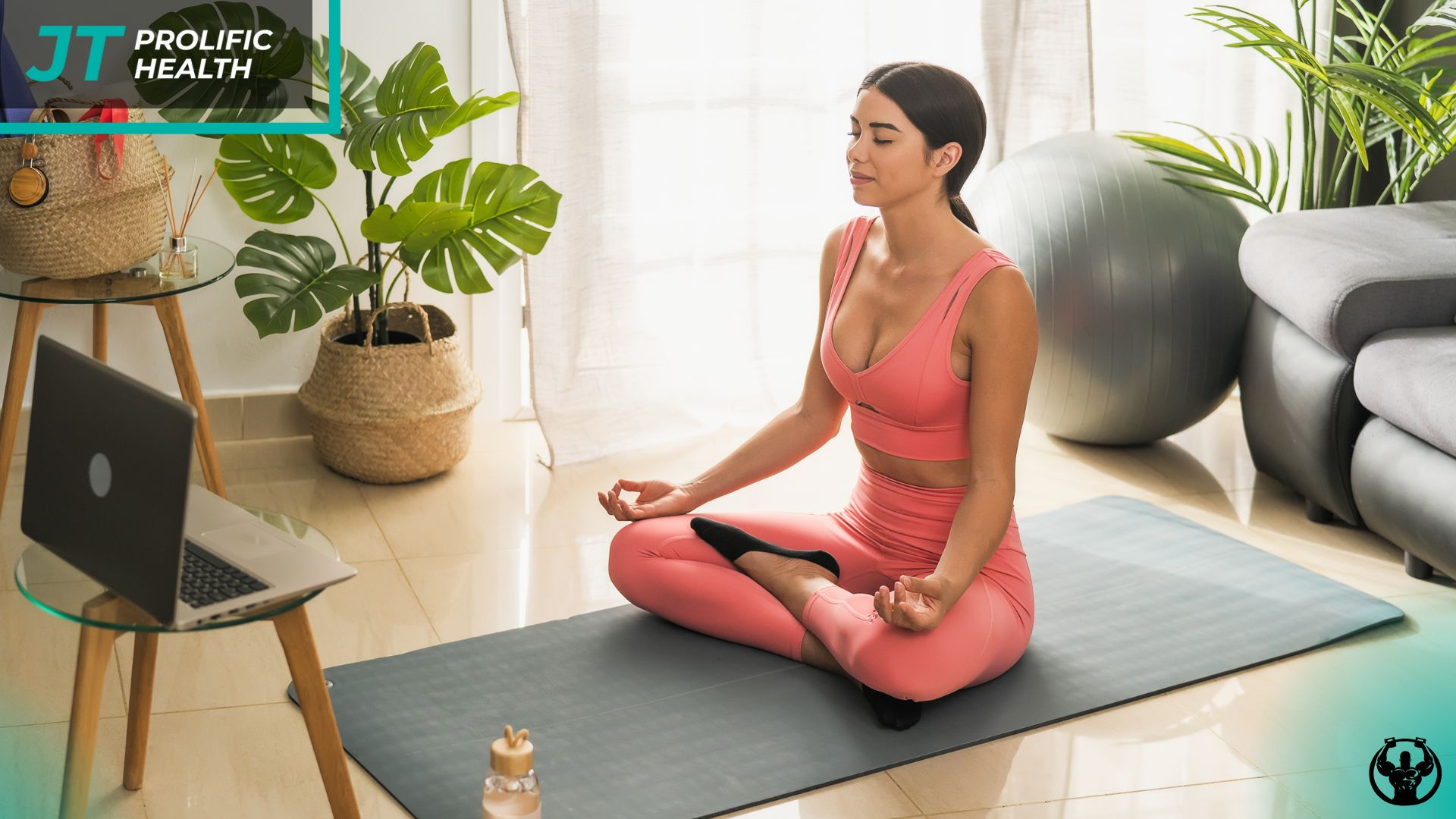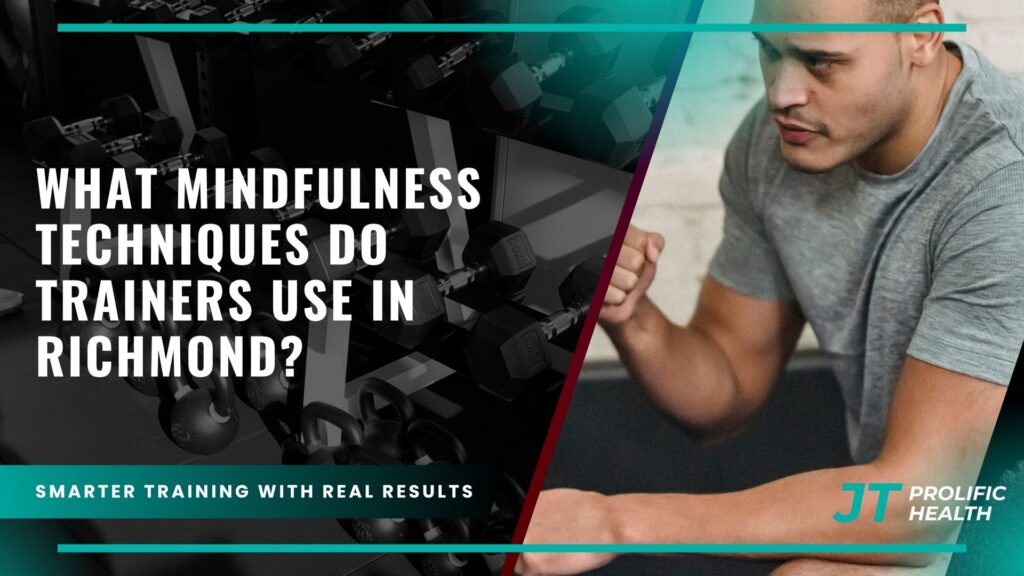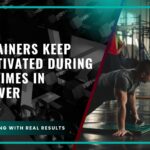The integration of mindfulness techniques into personal training has revolutionized the fitness industry in Richmond, BC. Forward-thinking trainers are discovering that combining physical exercise with mental awareness creates more sustainable, effective, and enjoyable fitness experiences for their clients. This holistic approach addresses not just the body’s physical capabilities, but also the mind’s role in achieving lasting health and wellness goals.
Richmond’s fitness professionals have embraced mindfulness as a powerful tool to enhance workout effectiveness, reduce exercise-related anxiety, and help clients develop a healthier relationship with their bodies. These techniques go far beyond simple relaxation exercises, incorporating evidence-based practices that improve focus, reduce stress, and create deeper mind-body connections during training sessions.
The growing popularity of mindful fitness approaches reflects a broader understanding that sustainable health improvements require attention to both physical and mental well-being. Trainers who incorporate these techniques report higher client satisfaction, better adherence to exercise programs, and more significant long-term results. This comprehensive approach recognizes that the mind plays a crucial role in physical performance, recovery, and motivation.
Modern personal trainers in Richmond are uniquely positioned to guide clients through this integrated approach, combining their expertise in exercise science with mindfulness practices that enhance every aspect of the fitness journey. From breathing techniques that improve workout performance to meditation practices that support recovery, these professionals are redefining what it means to achieve optimal health and fitness.
Key Takeaways
For additional context, see this comprehensive guide.
- Breath-focused training: Richmond trainers extensively use breathing techniques to enhance exercise performance, reduce stress, and improve mind-body connection during workouts
- Present-moment awareness: Mindful movement practices help clients focus on proper form, reduce injury risk, and maximize the effectiveness of each exercise
- Body scanning techniques: Trainers guide clients through progressive body awareness exercises to identify tension, improve posture, and enhance movement quality
- Stress reduction integration: Mindfulness practices are woven throughout training sessions to help clients manage workout anxiety and develop positive associations with exercise
- Recovery enhancement: Meditation and relaxation techniques are incorporated to improve post-workout recovery and support better sleep quality
- Goal visualization: Mental imagery and visualization exercises help clients stay motivated and maintain focus on their long-term fitness objectives
- Emotional regulation: Mindfulness techniques teach clients how to manage frustration, celebrate progress, and maintain consistency in their fitness routines
- Holistic lifestyle integration: These practices extend beyond the gym, supporting clients in making mindful choices about nutrition, sleep, and daily movement patterns
Overview of Mindfulness in Richmond Personal Training

The landscape of personal training in Richmond has evolved significantly as fitness professionals recognize the profound impact of mindfulness on exercise outcomes. This shift represents more than a trend; it’s a fundamental change in how trainers approach client care and program design. By integrating mindfulness techniques, trainers create an environment where clients can develop sustainable habits while addressing the psychological barriers that often prevent long-term fitness success.
Richmond’s diverse population brings varied cultural perspectives on mind-body wellness, creating a rich environment for mindful fitness practices. Many trainers draw from different traditions, including Western sports psychology, Eastern meditation practices, and contemporary neuroscience research to create personalized approaches for each client. This cultural diversity enriches the available techniques and allows for more individualized programming.
The effectiveness of mindfulness in fitness training stems from its ability to address common challenges that derail fitness progress. Many clients struggle with motivation, consistency, and the mental aspects of behavior change. When trainers understand how to assess and develop these crucial skills, they can better support their clients’ comprehensive wellness journey.
Professional development in mindfulness techniques has become increasingly important for Richmond trainers seeking to differentiate their services and provide superior client outcomes. This specialized knowledge complements traditional exercise science education, creating more well-rounded fitness professionals who can address the complete spectrum of client needs.
Breathing Techniques and Exercise Integration


Breathing forms the foundation of mindfulness-based personal training in Richmond, with trainers using sophisticated respiratory techniques to enhance every aspect of the workout experience. These methods go far beyond basic breath awareness, incorporating specific patterns designed to optimize oxygen delivery, activate the parasympathetic nervous system, and improve exercise performance. Trainers teach clients how to synchronize their breath with movement patterns, creating a meditative quality that transforms routine exercises into mindful practices.
The physiological benefits of proper breathing during exercise are well-documented, and Richmond trainers leverage this knowledge to help clients achieve better results with less perceived effort. By teaching diaphragmatic breathing techniques, trainers help clients engage their core more effectively, reduce unnecessary tension in the neck and shoulders, and maintain better posture throughout their workouts. This attention to breath quality often leads to immediate improvements in exercise form and endurance.
Progressive breathing exercises are introduced gradually, starting with simple awareness techniques and advancing to more complex patterns that support specific training goals. For strength training, trainers might teach clients how to use controlled exhales during the exertion phase of lifts, while cardio sessions might incorporate rhythmic breathing patterns that help maintain steady effort levels. These techniques become particularly valuable during challenging moments when clients might otherwise hold their breath or breathe ineffectively.
Richmond trainers also use breathing techniques as powerful tools for managing pre-workout anxiety and post-exercise recovery. Box breathing, alternate nostril breathing, and extended exhale techniques help clients transition into the right mindset for training and facilitate faster recovery afterward. Many clients report that these breathing practices become valuable life skills they use outside the gym for stress management and emotional regulation.
The integration of breathing techniques with movement creates opportunities for deeper mind-body connection that enhances proprioception and movement quality. When clients learn to use their breath as an anchor for attention, they become more aware of how their bodies move through space, leading to better coordination, balance, and overall movement efficiency.
Body Awareness and Movement Meditation


Movement meditation represents one of the most sophisticated applications of mindfulness in Richmond personal training, transforming routine exercises into opportunities for deep body awareness and present-moment focus. This approach teaches clients to treat each repetition, each step, and each movement as a meditation practice, cultivating attention and awareness while simultaneously improving physical fitness. Trainers guide clients through exercises with heightened attention to sensory feedback, muscle engagement patterns, and the subtle qualities of movement.
The practice begins with basic body scanning techniques, where trainers help clients develop awareness of different muscle groups, joint positions, and areas of tension or relaxation. This foundational skill becomes invaluable for injury prevention, as clients learn to recognize early warning signs of overexertion or poor movement patterns. The enhanced body awareness also leads to more efficient movement, as clients can make real-time adjustments to optimize their form and effort distribution.
Progressive movement meditation practices might include slow-motion exercises where clients perform familiar movements at dramatically reduced speeds, allowing for detailed attention to each phase of the movement. This technique is particularly effective for complex compound exercises like squats, deadlifts, or overhead presses, where proper sequencing and coordination are crucial for both safety and effectiveness. The meditative quality of these slow movements often helps clients overcome mental barriers and develop confidence with challenging exercises.
Richmond trainers incorporate walking meditation principles into cardio sessions, teaching clients how to maintain mindful awareness during treadmill walks, outdoor hikes, or cycling sessions. Rather than encouraging distraction through entertainment, these trainers help clients find engagement and interest in the subtle variations of pace, the rhythm of their steps, and the changing sensations throughout their cardiovascular workouts. This approach often leads to improved endurance and reduced perceived exertion.
Balance and stability exercises provide natural opportunities for movement meditation, as these activities require sustained attention and present-moment awareness. Trainers use single-leg stands, dynamic balance challenges, and proprioceptive exercises as platforms for developing mindful attention while simultaneously improving functional movement capabilities. These practices often translate into better coordination and reduced fall risk in daily activities.
Stress Reduction and Emotional Regulation Techniques
The emotional aspects of fitness training receive significant attention from mindfulness-focused trainers in Richmond, who recognize that psychological barriers often prevent clients from achieving their goals. These professionals employ sophisticated stress reduction techniques that help clients develop healthier relationships with exercise, overcome workout anxiety, and build resilience in the face of fitness challenges. By addressing the emotional components of behavior change, trainers create more supportive environments for sustainable progress.
Progressive muscle relaxation techniques are commonly integrated into warm-up and cool-down periods, helping clients transition into and out of their workout mindset. These practices involve systematically tensing and releasing different muscle groups while maintaining mindful awareness of the contrast between tension and relaxation. This technique not only prepares the body for exercise but also teaches valuable stress management skills that clients can apply throughout their daily lives.
Cognitive reframing exercises help clients develop more balanced perspectives on their fitness journey, moving away from all-or-nothing thinking patterns that often lead to frustration and abandonment of exercise programs. Trainers guide clients through mindful observation of their internal dialogue, helping them recognize and modify self-critical thoughts that undermine motivation and confidence. This psychological work often proves as important as the physical training for long-term success.
Emotional regulation techniques become particularly valuable during challenging workouts or when clients face plateaus in their progress. Richmond trainers teach clients how to use mindfulness practices to stay present with difficult sensations without becoming overwhelmed, building mental resilience that transfers to other life challenges. These skills help clients push through temporary discomfort while maintaining awareness of important safety signals from their bodies.
Many trainers incorporate loving-kindness meditation principles into their sessions, helping clients develop more compassionate relationships with their bodies and their fitness journey. This approach counters the harsh self-criticism that many people bring to exercise, replacing it with supportive internal dialogue that encourages consistent effort and celebrates incremental progress. The emotional safety created through these practices often allows clients to take appropriate risks and challenge themselves more effectively.
Recovery and Regeneration Mindfulness Practices
Recovery represents a crucial but often overlooked aspect of fitness programming, and Richmond trainers who embrace mindfulness techniques offer sophisticated approaches to post-exercise regeneration. These practices go beyond simple rest periods, incorporating active recovery techniques that support both physical restoration and mental rejuvenation. By teaching clients how to optimize their recovery through mindful practices, trainers help maximize the benefits of each training session while reducing the risk of overtraining and burnout.
Guided meditation sessions specifically designed for post-workout recovery help activate the parasympathetic nervous system, promoting faster physiological recovery and better adaptation to training stress. These sessions often focus on body scanning techniques that help clients assess their post-exercise state, identify areas that need attention, and consciously direct relaxation and healing energy to worked muscles. The practice of mindful recovery often leads to better sleep quality and improved readiness for subsequent training sessions.
Mindful stretching routines transform routine flexibility work into meditative practices that enhance both physical and mental recovery. Trainers guide clients through extended holds in stretching positions while maintaining present-moment awareness of the sensations of lengthening and release. This approach often leads to better flexibility gains compared to distracted stretching, as clients can more accurately gauge appropriate intensity levels and respond to their body’s feedback.
Visualization techniques for recovery and adaptation help clients mentally rehearse the physiological processes of muscle repair and strengthening. These practices combine relaxation with positive imagery of cellular regeneration, improved circulation, and enhanced fitness adaptations. While the direct physiological effects of visualization remain debated, clients consistently report feeling more optimistic about their progress and more connected to their body’s healing processes.
Richmond trainers often teach clients how to create mindful transition rituals that help separate their workout experience from the rest of their day. These practices might include brief gratitude meditations acknowledging the body’s efforts, intention-setting for the remainder of the day, or simple breathing exercises that help integrate the benefits of the training session. These transition practices help clients carry the positive effects of their workout into other areas of their lives while maintaining appropriate boundaries between training and recovery time.
Goal Setting and Visualization Techniques
The mental aspects of goal achievement receive sophisticated attention from mindfulness-oriented trainers in Richmond, who understand that sustainable fitness success requires more than physical capability alone. These professionals employ evidence-based visualization and goal-setting techniques that help clients maintain motivation, overcome obstacles, and achieve outcomes that might have seemed impossible through physical training alone. By addressing the psychological components of goal achievement, trainers help clients develop the mental skills necessary for long-term success.
Mindful goal-setting practices begin with deep self-reflection exercises that help clients identify their authentic motivations and values-based objectives. Rather than pursuing goals imposed by external expectations or social pressures, clients learn to connect with their intrinsic motivations for health and fitness. This foundation creates more sustainable motivation and helps clients maintain commitment during challenging periods. The process often reveals underlying beliefs and assumptions that might otherwise sabotage progress.
Visualization techniques are systematically integrated into training sessions, with clients practicing mental rehearsal of successful exercise performance, goal achievement, and positive lifestyle changes. These practices go beyond simple positive thinking, incorporating detailed sensory imagery that helps clients mentally practice complex movement patterns, emotional regulation strategies, and problem-solving skills they’ll need for success. Regular visualization practice often leads to improved actual performance and greater confidence in challenging situations.
Process-focused goal setting receives emphasis over outcome-focused objectives, helping clients develop appreciation for the daily habits and behaviors that lead to long-term success. Trainers guide clients through mindful reflection on their progress, celebrating improvements in consistency, effort quality, and skill development rather than focusing exclusively on external measures like weight loss or strength gains. This approach builds intrinsic motivation and reduces the emotional volatility often associated with outcome-dependent self-worth.
Many trainers incorporate mindful planning sessions where clients visualize potential obstacles and mentally rehearse effective responses. This proactive approach helps clients develop resilience and problem-solving skills before challenges arise, reducing the likelihood that temporary setbacks will derail long-term progress. The combination of realistic planning with positive visualization creates balanced expectations and robust motivation systems that support sustained effort over time. Understanding comprehensive lifestyle modifications that support fitness goals becomes an integral part of this mindful planning process.
Prolific Health’s Approach to Mindful Training
Prolific Health has emerged as a leader in integrating mindfulness techniques into personal training services throughout Richmond, offering clients a comprehensive approach that addresses both physical fitness and mental well-being. Their team of certified trainers combines traditional exercise science with evidence-based mindfulness practices, creating personalized programs that support sustainable lifestyle changes and long-term health improvements. This holistic approach recognizes that lasting fitness success requires attention to the psychological, emotional, and spiritual aspects of wellness alongside physical conditioning.
The organization’s commitment to mindful training extends beyond individual sessions to encompass comprehensive lifestyle support and education. Trainers work with clients to develop mindfulness practices that extend into daily life, supporting better nutrition choices, improved sleep quality, and more effective stress management. This integrated approach helps clients develop the self-awareness and emotional regulation skills necessary for maintaining healthy habits even when motivation fluctuates or life circumstances become challenging.
Professional development and continuing education in mindfulness techniques remain priorities for Prolific Health’s training team, ensuring that clients receive the most current and effective approaches available. The organization invests in advanced training for their staff, including certifications in meditation instruction, stress reduction techniques, and mind-body exercise modalities. This commitment to excellence ensures that clients receive expert guidance in both the physical and mental aspects of their fitness journey.
Client outcomes at Prolific Health consistently demonstrate the effectiveness of mindfulness-integrated training approaches, with participants reporting higher satisfaction levels, better adherence to exercise programs, and more significant improvements in overall quality of life compared to traditional training methods. The organization’s emphasis on creating supportive, non-judgmental environments allows clients to explore mindfulness practices at their own pace while receiving expert guidance and encouragement throughout their journey.
The success of Prolific Health’s mindful training approach has influenced the broader fitness community in Richmond, with other trainers and facilities beginning to incorporate similar techniques into their programs. This growing recognition of mindfulness as an essential component of effective personal training reflects a broader shift toward more holistic, client-centered approaches to health and wellness that address the complete spectrum of human needs and capabilities.
Frequently Asked Questions
What mindfulness techniques are most commonly used by personal trainers in Richmond?
Richmond trainers frequently employ breathing exercises, body scanning techniques, movement meditation, and present-moment awareness practices. These foundational techniques are often combined with visualization exercises, progressive muscle relaxation, and mindful goal-setting practices to create comprehensive programs tailored to individual client needs.
How do mindfulness techniques improve workout effectiveness?
Mindfulness enhances workout effectiveness by improving focus and form, reducing unnecessary tension, and increasing mind-body connection. Clients who practice mindfulness during exercise often experience better coordination, reduced injury risk, and greater awareness of their physical capabilities and limitations, leading to more efficient and safe training sessions.
Can beginners learn mindfulness techniques during personal training sessions?
Absolutely. Most Richmond trainers introduce mindfulness concepts gradually, starting with simple breathing awareness and basic body scanning techniques. These foundational practices are accessible to clients of all experience levels and often become more sophisticated as clients develop greater comfort and skill with mindful attention during exercise.
How long does it take to see benefits from mindfulness-based training?
Many clients report immediate benefits such as reduced workout anxiety and improved focus during their first few sessions. Deeper benefits like enhanced emotional regulation, better stress management, and improved body awareness typically develop over several weeks of consistent practice, with most clients noticing significant changes within 4-6 weeks of regular training.
Are there specific certifications trainers should have for mindfulness-based fitness?
While traditional personal training certifications provide the foundation, additional credentials in mindfulness instruction, meditation teaching, or mind-body exercise modalities enhance a trainer’s ability to effectively integrate these techniques. When evaluating trainer qualifications, clients should look for evidence of specialized training in mindfulness applications for fitness.
How do mindfulness techniques help with exercise motivation and consistency?
Mindfulness practices help clients develop intrinsic motivation by connecting them with their authentic values and goals. These techniques also teach emotional regulation skills that help clients maintain consistency even when motivation fluctuates, creating more sustainable exercise habits and reducing the all-or-nothing thinking that often derails fitness progress.
Can mindfulness techniques help with exercise-related anxiety or gym intimidation?
Yes, mindfulness techniques are particularly effective for managing exercise anxiety and gym intimidation. Breathing exercises, grounding techniques, and present-moment awareness practices help clients stay calm and focused rather than becoming overwhelmed by self-consciousness or fear. These skills often transfer to other anxiety-provoking situations as well.
What should I look for when choosing a trainer who incorporates mindfulness techniques?
Look for trainers who can clearly explain their mindfulness approach, have relevant training or certifications, and demonstrate genuine understanding of mind-body connections. The trainer should be able to adapt techniques to your comfort level and integrate mindfulness naturally into exercise sessions rather than treating it as a separate add-on. Consider reviewing potential warning signs to avoid when making your selection.
Conclusion
The integration of mindfulness techniques into personal training represents a significant evolution in the fitness industry, with Richmond trainers leading the way in developing comprehensive approaches that address both physical and mental well-being. These sophisticated practices go far beyond simple relaxation exercises, incorporating evidence-based techniques that enhance exercise performance, improve emotional regulation, and support sustainable lifestyle changes. The growing body of research supporting mindfulness applications in fitness continues to validate what many trainers and clients have experienced firsthand: that attention to the mental aspects of exercise dramatically improves outcomes.
The success of mindfulness-integrated training in Richmond reflects a broader cultural shift toward more holistic approaches to health and wellness. As clients become more educated about the connections between mental and physical health, they increasingly seek trainers who can address the complete spectrum of their wellness needs. This demand has driven innovation in training techniques and professional development, creating a new generation of fitness professionals who are equipped to guide clients through comprehensive transformation processes.
For individuals considering personal training in Richmond, the availability of mindfulness-integrated approaches provides opportunities for deeper, more sustainable changes than traditional exercise-only programs might offer. These techniques are particularly valuable for clients who have struggled with consistency, motivation, or exercise anxiety in the past, as they address the psychological barriers that often prevent long-term success. The skills learned through mindful training extend far beyond the gym, supporting better stress management, emotional regulation, and overall quality of life.
The future of personal training in Richmond will likely see continued expansion of mindfulness applications, with trainers developing even more sophisticated techniques for supporting client success. As the evidence base continues to grow and professional training opportunities expand, clients can expect access to increasingly effective and personalized approaches that honor both their physical capabilities and their mental well-being. For those seeking the right trainer for their needs, understanding these mindfulness applications can help inform better decisions about their fitness journey.




